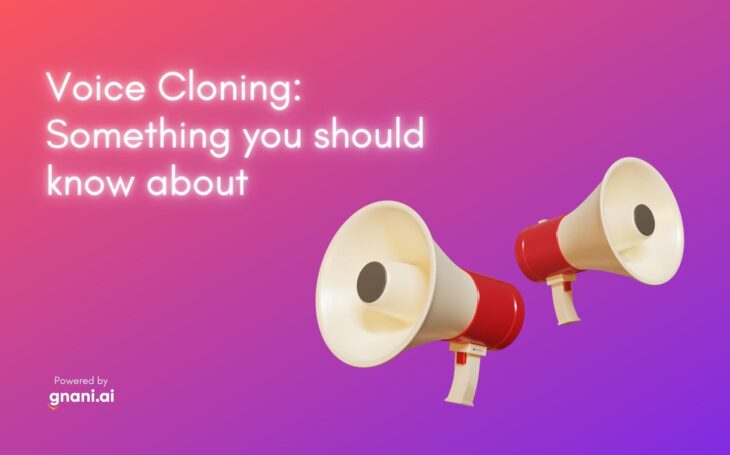
Did you know that you can clone your voice? Yes, with the help of some sophisticated software, you can create an exact replica of your voice – and use it to say anything you want!
What’s voice cloning?
Voice cloning is a process where a person’s voice is recorded and then replicated using artificial intelligence. The cloned voice can be used for a variety of purposes, including speech synthesis and text-to-speech applications. This technology can create a digital copy of someone’s voice and reuse it for various purposes. This allows people to create a custom voice for applications like speech synthesis and voice recognition.
The process of creating a digital copy of someone’s voice is relatively simple. First, the person’s voice is recorded using a microphone. Next, the recording is fed into a computer program that analyzes the sound waves and creates a mathematical model of the person’s vocal cords. Finally, the model is used to generate a new voice that sounds similar to the original. Voice cloning technology is still in its early stages, but it has the potential to revolutionize how we interact with devices like smart speakers and virtual assistants.
The benefits of voice cloning.
There are many benefits to voice cloning, including:
- The ability to create a perfect copy of your voice.
- The ability to use the cloned voice for any purpose you desire.
- The ability to keep your original voice intact.
- The ability to share your cloned voice with others.
Disadvantages to voice cloning
The downside of voice cloning. While there are many benefits to voice cloning, there are also some potential downsides, including:
- The possibility that your cloned voice could be used for nefarious purposes.
- The possibility that your cloned voice could be used to impersonate you.
- The possibility that your original voice could be lost forever if something happened to the recording.How to protect yourself from voice cloning.
How to keep yourself safe?
If you’re concerned about the possibility of your voice being cloned, there are a few things you can do to protect yourself, including :
- Use a voice recognition system.
- Use a password-protected system.
- Use a biometric system.
- Use a system that encrypts your voice.
- Use a physical security measure, like a fingerprint scanner.
So how does it work?
Well, first, a recording of your voice is made. This recording is then fed into a computer program that analyzes your vocal patterns, including the pitch, timbre, and rhythm of your speech. Once the program has analyzed your vocal patterns, it can then create a digital copy of your voice.
This digital copy of your voice can be used for a variety of purposes. For example, it can be used to create a text-to-speech application that can read out loud any piece of text you give it. Or, it can be used to create a speech synthesis system that can generate speech in your voice.
How to create a voice clone
If you’re interested in creating a voice clone, there are a few different ways you can go about it.
One option is to use a service like Larvae.io. This service allows you to record your voice and then create a digital copy of it that you can use for various purposes.
Another option is to use a software program like Voicery. This program also allows you to record your voice and then create a digital copy of it. However, Voicery also offers some additional features, such as the ability to control the pitch, timbre, and rhythm of your cloned voice.
Finally, if you’re feeling adventurous, you can try cloning your voice using open-source tools like Mozilla’s Deep Voice project. This project provides all the code you need to create a voice clone, but it requires a fair amount of technical expertise to set up and use.
Whichever method you choose, cloning your voice can be a fun and interesting experience. And who knows, you might even find some practical uses for your cloned voice!
The future of voice cloning
As voice cloning technology continues to develop, it’s likely that we’ll see more and more practical applications for it. For example, voice clones could be used to create personal assistants that sound just like you. Or, they could be used to generate realistic-sounding synthetic speech for use in movies and video games. The possibilities are endless. So far, voice cloning technology has been used mostly for fun and experimentation. But as it matures, it’s likely that we’ll see it being used for a wide variety of practical purposes.
Conclusion
Voice cloning is a fascinating technology with a wide range of potential applications. While it has some potential downsides, the benefits of voice cloning far outweigh the risks. If you’re interested in exploring this technology, there are a few different ways you can go about it.
What do you think?
Do you think voice cloning is a good or bad thing? Is voice cloning something you should know about? Do you think there are potential uses for voice clones that we haven’t thought of yet? Let us know in the comments




